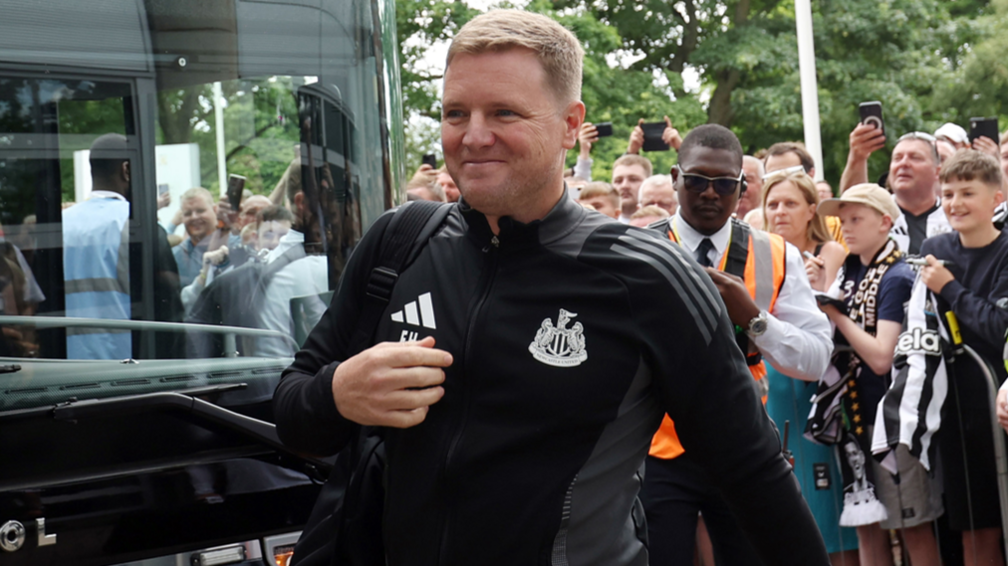Prepare for 'Carsball' - what to expect from Carsley's England
England: Why Lee Carsley has been named interim manager
- Published
Some of the biggest managerial names in world football have been linked to the England job since Gareth Southgate resigned after Euro 2024.
But, for now at least, it is Lee Carsley who takes over as England's interim manager for Nations League games against the Republic of Ireland and Finland in September - and possibly beyond.
Could the England Under-21 manager be a contender for the permanent role, following the pathway of his predecessor Southgate?
I followed Carsley's England U21 side in Georgia last summer as they won the trophy for the first time in 39 years, playing a brand of fluid, attacking, high-risk football - while also becoming the first team to record six successive clean sheets in the tournament's history.
Carsley even guided England to victory over Spain in that final - a feat that appears impossible at senior level, with the Spanish men's national team and La Liga sides winning all 27 major finals the two countries have been involved in dating back to 2002.
A former Republic of Ireland international, Carsley is one of several highly rated coaches to have progressed through the St George's Park system since he joined the FA set-up in 2015.
'Unbelievable manager' - what is Carsley's style of play?
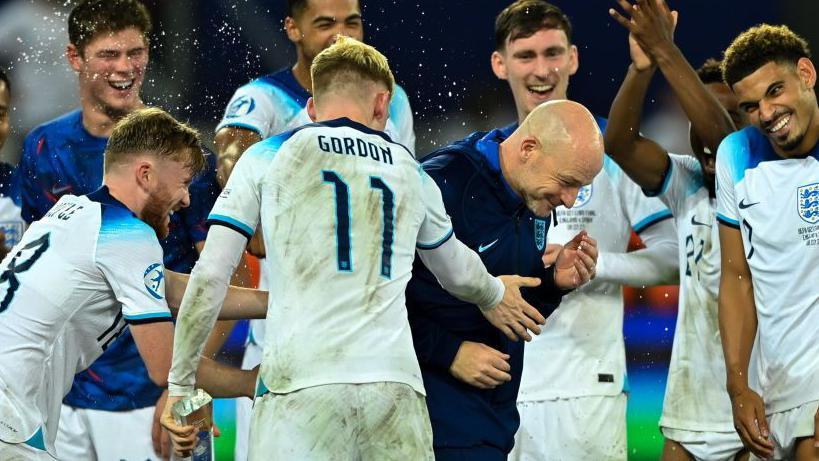
England Under-21s celebrate with manager Lee Carsley after winning the European Championship final
One of the main criticisms of Southgate's tenure was he did not make enough of the attacking players he had at his disposal.
It was the most hotly debated issue of England's run to Euro 2024, with plenty of debate about Phil Foden's perfect position, Cole Palmer only being used from the bench and Anthony Gordon barely featuring.
When the England U21 side won the European Championship last summer, social media was rife with montages of the team's attractive football - dubbed 'Carsball'.
Those homemade edits resurfaced in the days after Southgate stood down and Birmingham-born Carsley was mooted as being among the contenders to replace him.
In contrast with former Everton and Derby midfielder Carsley's playing career as a central destroyer, he encourages his side to build up with the ball and to express themselves.
At the tournament in Georgia his side was packed with technical players such as Liverpool duo Harvey Elliott and Curtis Jones, and Nottingham Forest's Morgan Gibbs-White.
He had a right-footed left-back in Bournemouth's Max Aarons, Everton's James Garner - a central midfielder - playing at right-back and Jones, a number 10, as one of his two pivots in midfield.
Jones played alongside Angel Gomes - now at Lille - who had already transitioned from a number 10 to a deep midfielder. Carsley resisted the temptation to put a traditional central midfielder next to him.
Moves often started with Burnley goalkeeper James Trafford passing out and players encouraged to express themselves and trust their decision-making.
There was one occasion when Chelsea defender Levi Colwill stood still on the ball for more than 30 seconds as he waited for the opposition to press him so he could draw in pressure, then initiate the attack - something the team had worked on in training.
Whenever England play, there is debate about how they fit in all of their best players. Looking at how Carsley set up his under-21s side, could he be the coach to fit together Trent Alexander-Arnold, Kyle Walker and Reece James - England's glut of exceptional right-backs - and players such as Palmer, Bukayo Saka, Jack Grealish, Foden and Jude Bellingham into one team?
On the way to lifting the trophy in Georgia, when his side came up against Germany in the group stage, Carsley played Palmer in a number eight position in centre midfield and played the majority of the championship with Newcastle winger Gordon - who was named player of the tournament - as his main striker.
Gordon called Carsley the "best man-manager" he has had in his career and Liverpool's Elliot has described him as an "unbelievable manager".
Of course, there are players such as John Stones, Declan Rice and captain Harry Kane that Carsley has not worked with before but, since the under-21s lifted the trophy in Georgia, a large number of them have made the step up into the senior squad.
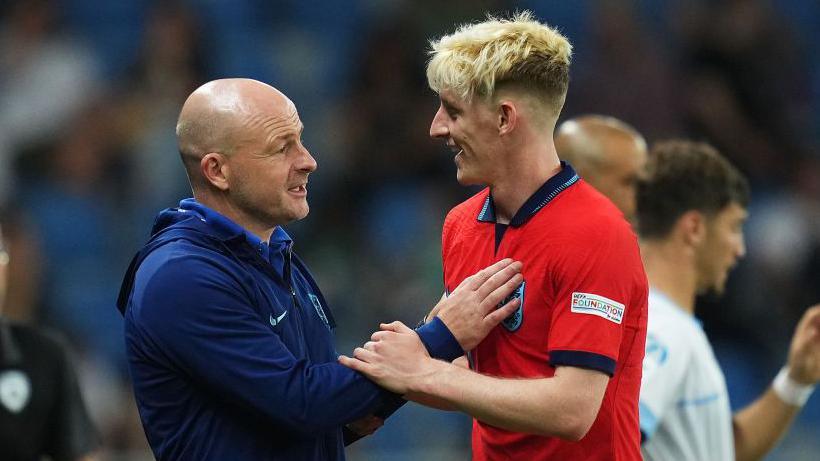
Could Carsley's U21 relationship with Newcastle's Anthony Gordon blossom at senior level?
Dealing with the media
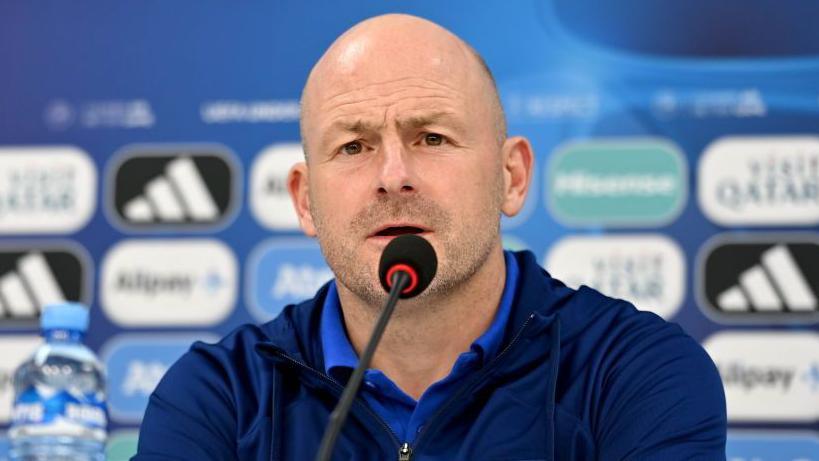
Carsley follows the path of Howard Wilkinson, Stuart Pearce and Southgate who all stepped up to the England senior job after taking charge of the under-21s
Carsley says he loves to be on the training pitch with his players, describing putting the cones out before sessions as "the best bit" of the job.
However, the scrutiny that comes with being England manager would be something that he has never faced before, along with the bigger personalities and profiles of player that he will have to manage.
One of the things that comes with being England manager is the almost statesman-like role required when dealing with the media.
With so much interest in the team and the profile of players and manager being so high, their opinions on important matters carry weight.
Southgate was excellent at dealing with difficult topics such as racism, taking the knee, debates about flags on kits and lots of other off-field issues.
He got less involved in those matters towards the end of his tenure as he wanted to focus on football.
However, Southgate struggled with the level of criticism this summer, eventually revealing how much some of it hurt him personally, amid abuse from some supporters.
This level of scrutiny will be something Carsley would have to get used to.
He has done hundreds of interviews as a player and manager throughout his career, but every word as England manager would be dissected.
When dealing with him at media opportunities at the European Championship tournament in Georgia, he was guarded but very happy to talk about the tactical side of the game and deflected questions he didn't want to engage with in a friendly manner.
He is protective of his players and with the U21 side he understands that some players need an arm around their shoulder when not playing at their clubs, and how game time with the Young Lions could be vital to them.
He's been around the England set-up long enough and worked with high-profile players long enough to know what is said in front of the media will really matter.
Where has Carsley managed before?
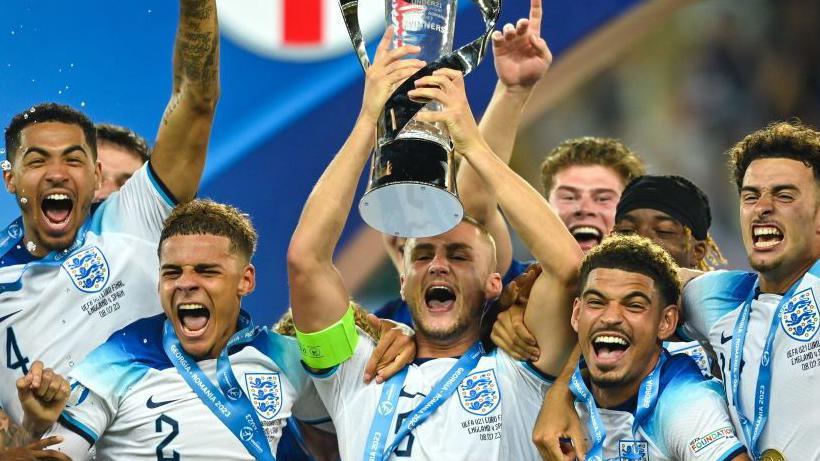
Lee Carsley's exciting England Under-21 team beat Spain to win the European Championship in 2023
One of the arguments that could be put forward against Carsley as the permanent manager is his relative lack of top-level experience, though he has coached men's senior teams before.
As a player, he has a lot of experience of senior football, and in a career spanning over 500 games, he played 282 times in the Premier League.
The 50-year-old was caretaker manager of Coventry City in 2012 and 2013, and caretaker of Birmingham City in 2017. He also had a 10-game stint as interim head coach in the Championship before Dean Smith was appointed permanently at Brentford.
During his time as the Bees' interim manager he won five of his 10 games in charge and was named Championship Manager of the Month in October 2015.
Carsley had been in discussions with Brentford owner Matthew Benham about taking the job at the club permanently during that time but he said he was focused on development football.
Benham said to Carsley he could develop the players in the first team at the club and Carsley has since admitted he wouldn't be "caught out" by making that mistake again if offered a senior job.
When speaking to the BBC in 2023, he said he played the best football of his career between the ages of 28 and 33, using the example that players can always develop at any stage.
It is a similar story for coaches and managers, too, and now we can look ahead to Carsley's big moment in the spotlight, a chance to assess how he has developed.
As auditions go, a debut fixture on 7 September in Dublin against the country he represented at international level promises to be quite the introduction.
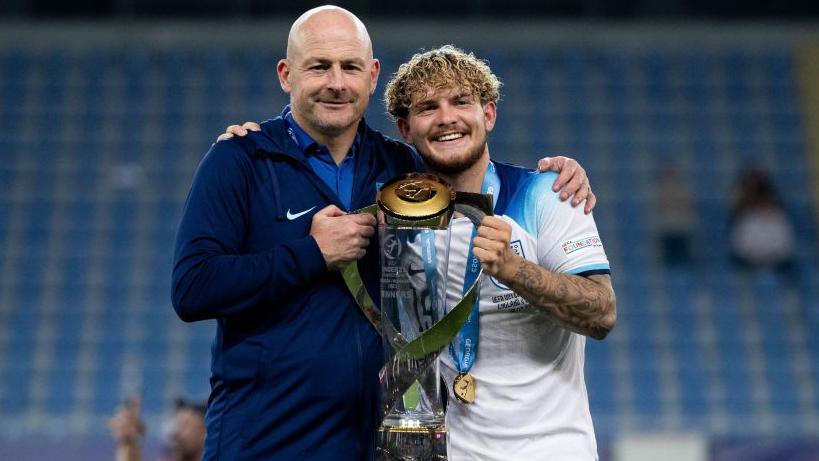
Carsley and Liverpool's Harvey Elliott with the European Under-21 Championship trophy after they beat Spain in the final in 2023
- Published16 July 2024
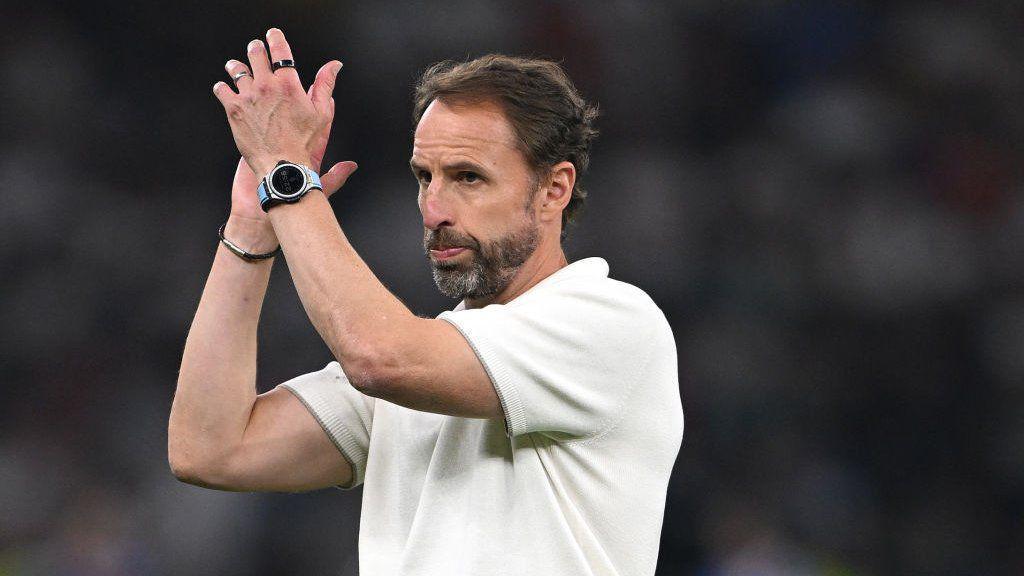
- Published31 July 2024
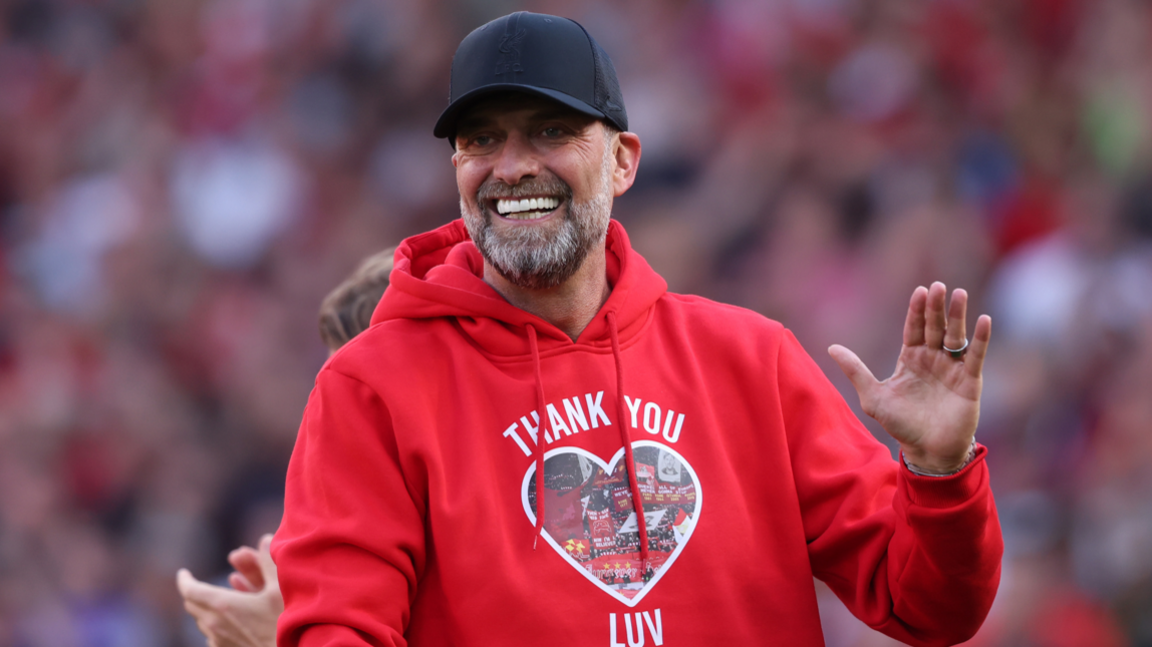
- Published30 July 2024
